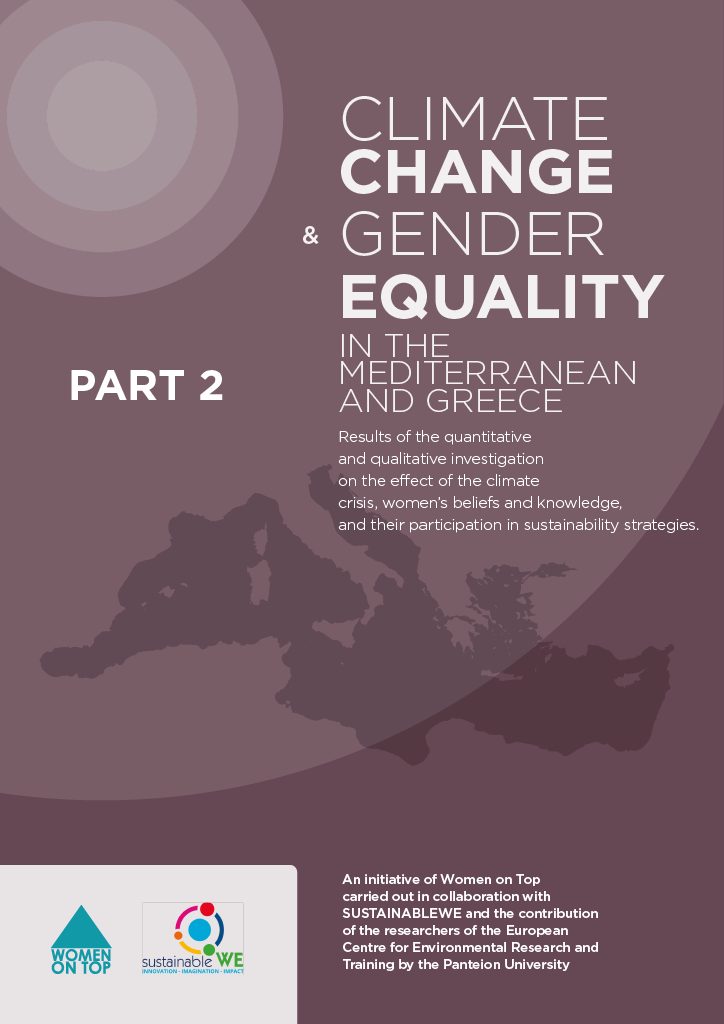
Women On Top, in collaboration with SUSTAINABLEWE and qed, and with the support of PPC, Henkel, Sani/Ikos Group, Quest, Lush Fund and MedWomen Fund, implemented the second part of its study on the effects of climate crisis in the lives of women in Greece, but also the role of women in planning and implementing sustainability strategies.
The first part of the study, completed in the spring of 2022, attempted to shed light on the interaction of climate change and gender equality, based on data that highlight that women, like other vulnerable social groups, are more adversely affected by the phenomenon in many areas of daily life, both in the cities and in the countryside, but they participate less than necessary in the strategies and actions to deal with it.
The first part of the study, completed in the spring of 2022, attempted to shed light on the interaction of climate change and gender equality, based on data that highlight that women, like other vulnerable social groups, are more adversely affected by the phenomenon in many areas of their daily life, both in the cities and in the countryside, but they participate much less in mitigation strategies and actions.
The literature review, which was the basis for the 1st part of the study, revealed that the increase of inequalities that affect women due to climate change is becoming apparent in the agricultural and tourist sector, especially when women are exposed to extreme weather events and natural disasters, which they are – mainly for social reasons – less equipped to handle.
The 2nd part of the study, which aims to contribute to filling the data gap observed in our country, includes a quantitative survey on the beliefs and the effect of climate change on women’s lives in Greece. It uses a nationwide sample of 1,027 women and personal interviews with representatives of the stakeholders. The research circles back to the tools we can use to face these challenges and to integrate a gender perspective in every initiative and policy aimed at climate adaptability and sustainable development.
